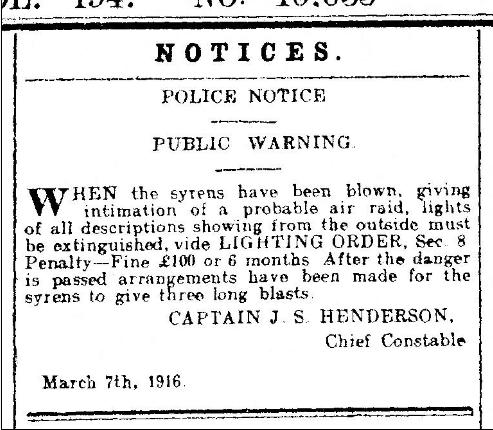
|
Arborfield
|
|
Memories
Related sites:
|
The Zeppelin Raid of 6th March 1916
Two Reading newspapers reported the warning of a
Zeppelin raid on 6th March in very different ways:
The 'Reading Standard' report.
How the 'Mercury' reported it: THE ZEPPELIN RAID Just before 1 o’clock on Monday morning the inhabitants of a southern town for the first time received warning that hostile aircraft were passing over the country. It was at 9:15 on Sunday evening that intimation was received by the police that Zeppelins were over Lincolnshire and were travelling north by west. It was nearly four hours later that the authorities were notified from London that all precautions had to be taken, and on this the police at once acted. As is now known, the enemy’s airships visited several of the Eastern Counties, including Essex and Kent, and it is possible that they were at one of these counties when the warning was given. Nearly 90 special constables turned out with great promptitude and paraded north and west and at the central, afterwards going to different parts of the town on patrol, similar duties being discharged by the regular police. A large body of the 1st Berks Volunteer Defence Regiment also lent their services and acted as pickets, and about 20 stretcher-bearers of the V.A.D. were in readiness in case of emergency, but happily their services were not needed. The street lamps were extinguished with great promptitude, the Fire Brigade were in readiness, and more water was turned on, with the result that there was a good pressure. The staff employed at the Post Office telephones carried out their duties most readily in dispatching messages to various officials. In fact, it may well be said that everyone responded to the call in a manner calling for the highest praise, and much credit is due to the Chief Constable and others for the excellence of the precautions. Similar warnings may be given on several occasions without the advent of airships over the town, but after all it is better to take no risks rather than be subjected to the dropping of bombs. The instructions recently given were for the greater part carried out. Most persons kept indoors, but there were several instances where instead of turning out all lights in the house and using candles, brilliant lights were burning, and in some cases rays of light coming from the windows. This is most dangerous and would enable hostile aircraft to locate their position in the event of a raid. Those on patrol frequently had occasion to call the occupier’s attention to this, and we may point out that breaches of the regulations are attended with heavy penalties. The advice of the authorities is: Keep under cover, turn out all lights in the house (using candles instead), and not light again for the remainder of the night. It is also advisable to turn the gas off at the meter and switch off the electric light. There was no sign of panic, which is to the credit of the inhabitants. It was about 3:15 that notification was given that danger had passed.
AIR RAIDS Another town, which had not taken these necessary measures of safety, was observed and paid the penalty. On the return journey the airships passed over the town which had taken precautions, a second time. The town was silent, dark, and safe. The hours of Zeppelin visits are uncertain, and
do not synchronise with the time expected at the Post Office.
On Monday morning about one o’clock, when the stillness of the night was broken by hooters calling loud and long, the public were naturally somewhat alarmed, though nothing resembling a panic ensued. For about a quarter of an hour these nocturnal voices warned people of the danger that threatened. Cocks crowed and dogs barked. Many people jumped out of bed and dressed. Some sat up all night, but the majority went to bed again after an hour or so on learning that the expected raid hadn’t materialised. One family hurriedly collected their money and insurance policies and stood out in the garden for a long time, but this incident was not at all a typical one. Indeed, the prevailing mood was one of calm - like the man who, when his slumber was broken by a cry of "Wake up - Zeppelins!", muttered "---- the Zeppelins", and with an angry grunt went to sleep again […] At 3: 15 a.m., a message was received that the danger had passed, and Reading was herself again.
|
| |
|
Any Feedback or comments on this website? Please e-mail the webmaster |
